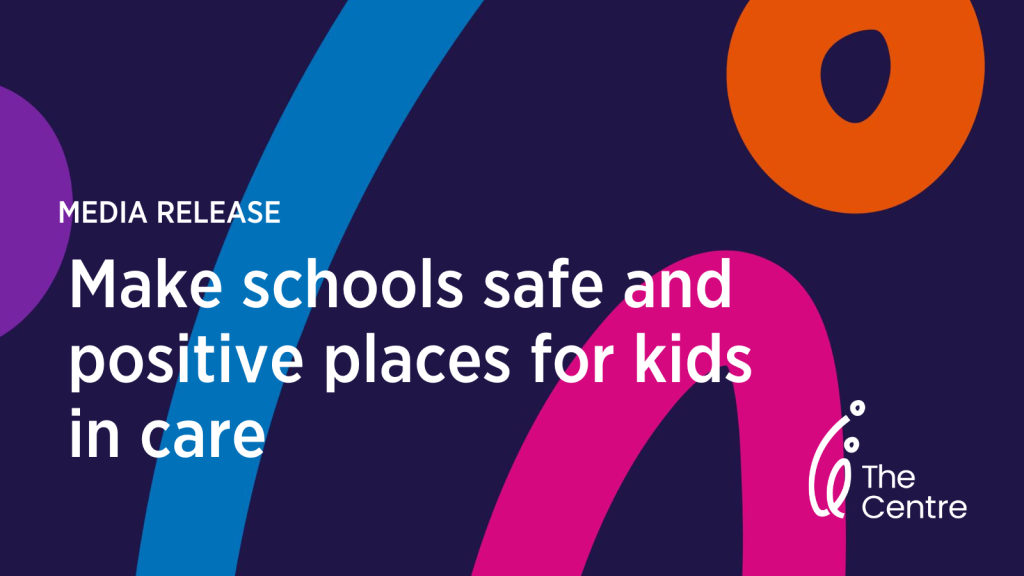A Report investigating the education outcomes for children in out-of-home care tabled in Parliament this week shows negative attitudes and low expectations are driving poor education outcomes and increased disengagement from school for children and young people in care.
The Let Us Learn report tabled by the Commission for Children and Young People (CCYP) shows negative attitudes faced by children and young people with care experiences within the education system is resulting in children in care falling significantly behind their peers.
Outcomes are worse for Aboriginal students in care with the report showing that low expectations and racism can lead to educational disengagement, which is amplified when they are removed from family kin and country. Children and young people in care with a disability reported low expectations, bullying, and lack of support in classrooms was holding them back from fully participating in their education.
However, the Centre’s CEO Deb Tsorbaris says the report and recommendations identify an opportunity for the education system to work toward becoming a safe and positive place for kids in care.
“We need the government, educators, and communities to really get behind children, young people and families and help them when they are experiencing challenging times in their family life. This requires a huge shift in attitudes to make sure that school is a positive part of their lives during these times,” she says.
The report reveals exclusionary practices and behaviour management responses are impacting negatively on children and young people in care’s engagement with school. High rates of suspension highlight a need for more trauma-informed responses in schools, rather than punishment.
“Children and young people in care have already been through a lot and they need support in education in ways other children may not. They may have experienced abuse or neglect and their families may be experiencing complex and intergenerational trauma. On top of that they may have had to change schools or be travelling long distances due to their care placements.
“They have a lot going on in their lives, and they really need schools to be a safe and welcoming place for them. When schools meet that need for stability and support, these kids can really thrive,” Ms Tsorbaris says.
The Centre has seen excellent outcomes in raising awareness about what children in care can achieve through its government-funded Raising Expectations program, which works with university and TAFE partners to support young people with care experiences to access and succeed in vocational and higher education.
“Raising Expectations has had huge success over the last eight years, significantly increasing post-secondary participation of care-experienced students studying at TAFE and university. The program initially identified just over 40 care experienced students and now has over 650 students enrolled, with more than 400 completions of vocational or higher education courses in this period,” says Ms Tsorbaris.
The report’s 47 recommendations include measures to address workforce challenges in retaining and recruiting staff. It calls for increases in financial support for kinship and foster carers and improved access to flexible education-related funding.
Examples of positive outcomes from the many existing programs across early years, kindergarten, primary and secondary school, and post-secondary education, are showcased in the report, which shows there are already great initiatives in place.
Ms Tsorbaris says there is a lot of work to do, but the report provides a roadmap for improving education outcomes for children and young people in care and identifies the gaps and areas where additional support and funding will drive positive educational experiences for children and young people in out-of-home care.
“Kids in care are just like everyone else – they want to learn, they want to be successful, and they deserve to have every opportunity to achieve their dreams.”
Read the Centre’s summary of the report here.






